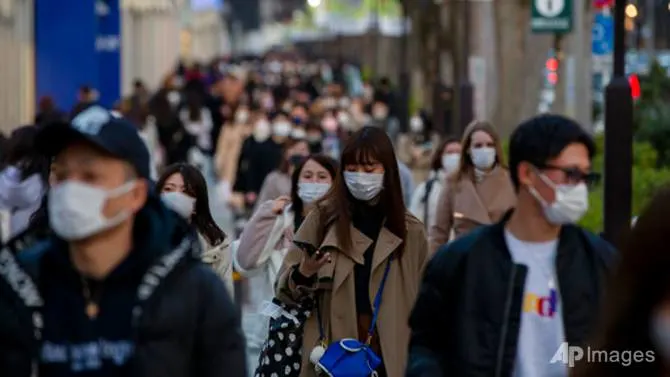Japan embarks on random and targeted COVID-19 testing, but some experts call for more
03 March, 2021

Last week, about 600 persons were tested for the coronavirus on the town of Utsunomiya, north of Tokyo: JAPAN government's first stab at systematic random and targeted testing that it hopes will prevent a fresh wave of infections.
About 300 people walking in metropolis and another 300 at local schools received saliva-based polymerase chain reaction (PCR) tests.
Compared to mass-tests drives in Southern Korea, China and different nations, it had been a small effort. But also for Japan, the screening work out - set to end up being replicated in many places - represents a substantial step up.
Concerned by highly transmissible variants of the virus and asymptomatic spread, Japan revised their pandemic strategy in early February, and the brand new testing comes as much regions emerge from a two-month state of unexpected emergency and Tokyo prepares to host the Olympics from July.
However, many health experts argue the updated technique still falls considerably short of what's needed, especially considering that inoculations have only started and vaccine items are limited.
Medical ministry's policy of eschewing mass-testing to save manpower and hospital resources is "upside down and totally wrong", says Yusuke Nakamura, a renowned geneticist and cancer researcher.
He believes Japan has squandered prospects to drive straight down infections to zero with considerable PCR testing and really should be investing heavily found in automated PCR testing devices.
The federal government conducts around 40,000 PCR tests a day, in regards to a quarter of its capacity, restricting tests to persons who are symptomatic or who've had a high potential for being infected.
During the period of the pandemic, it has performed about 60 COVID-19 tests per 1,000 people, compared with 130 in South Korea or 1,000 in the United States, according to the Our World in Data website run by an Oxford University analysis programme.
Instead, Japan possesses concentrated on busting up clusters by tracing their options, with medical ministry defending its COVID-19 testing regime as consistent with standards placed by the Community Health Organization.
To be fair, that policy coupled with instructions to the general public to avoid crowded and poorly ventilated places together with widespread mask-wearing, had been relatively successful in containing the virus until a surge in infections early this year.
This year's state of emergency, Japan's second and which focused on getting restaurants and bars to close at 8pm, has taken cases down sharply.
Tokyo happens to be averaging less than 300 cases daily in the last seven days, weighed against several days greater than 2,000 cases found in early January.
Health ministry officials have also argued that tests is satisfactory if the coronavirus positivity rate is around 5 per cent or perhaps less. Japan's seven-day normal positivity rate by end-February was 2.8 % while Tokyo's was 3.5 %.
The demands more testing, however, have also found backers among plenty of lawmakers.
"Now that cases 're going down, that is our prospect to expand testing," said Yuichiro Tamaki, who potential clients the Democratic Party for the Persons, a little opposition party. He would like the government to provide free, antigen-based self-testing kits to every citizen.
Tamaki says he gets the support of other lawmakers including some from the ruling Liberal Democratic Party as widespread testing could allow the government to restart tourism advertising campaigns.
Underscoring misgivings about the central government initiatives, some local governments happen to be taking matters to their own hands. The places of Ichikawa and Inzai, east of Tokyo, are providing free PCR lab tests to people over 65, while Hiroshima has set up five non permanent PCR test centres for free.
Source:
